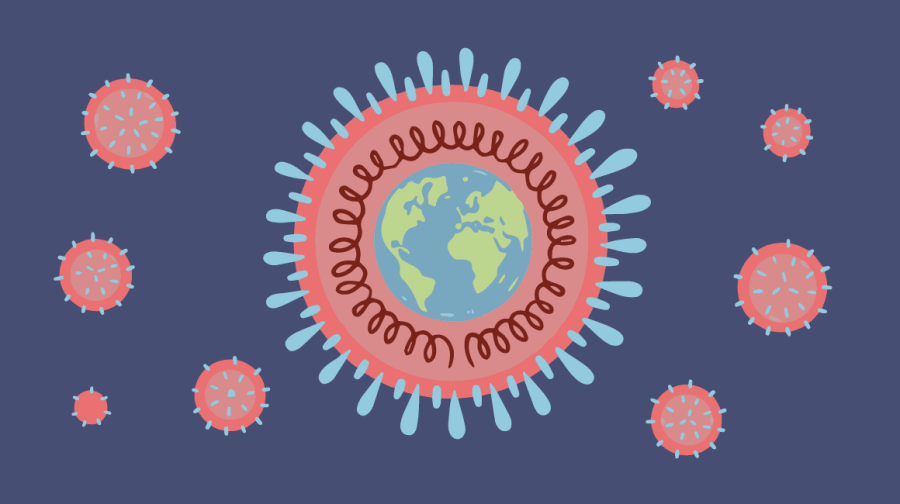World Health Organization declares an end to COVID-19
May 15, 2023
The World Health Organization declared an end to COVID-19 as an international health emergency on May 5.
This decision came to fruition after the 15th meeting of the WHO’s International Health Regulations Emergency Committee on May 4.
The pandemic has been on a downward trend for over a year with fewer weekly cases now than ever since Jan. 30, 2020, when COVID-19 was first declared an emergency. This lower incidence rate is also compounded with an upward trend in public immunity due to both the prevalence of vaccinations and infection. As such, mortality rates have decreased and, subsequently, so has the pressure on hospitals and health systems.
“This trend has allowed most countries to return to life as we knew it before COVID-19. It is therefore with great hope that I declare COVID-19 over as a global health emergency,” the director-general of the WHO Tedros Adhanom Ghebreyesus said, referring to the downward trend of COVID-19 cases. “However, that does not mean COVID-19 is over as a global health threat. Last week, COVID-19 claimed a life every 3 minutes — and that’s just the deaths we know about.”
In the three years during which COVID-19 was an international emergency, the recorded death toll was 6.9 million out of the 765 million confirmed cases, though the estimated true death toll by the WHO number two to three times as much. In the US alone, this amounted to 103 million confirmed cases and 1.1 million deaths.
Over 13 billion vaccine doses have been administered, as of April 30.
COVID-19 was the latest instance of a disease being designated a “public health emergency of international concern” since 2007. The others were monkeypox, Zika, H1N1, polio and Ebola —with Ebola being designated as an emergency twice.
Though COVID-19 is no longer considered a public health emergency of international concern, the WHO declared that it was still a global threat.
In the statement on the 15th meeting, Ghebreyesus laid out seven temporary recommendations moving forward. He also laid out Preparedness and Response Plan for the COVID-19 virus over the next two years to ensure that the strides made in the health sector during the pandemic are maintained.
Some of these recommendations include supporting research and sharing of data, integrating COVID-19 vaccines into life course vaccination programs, lifting COVID-19 international travel measures and preventing degradation of health systems such that the occurrence of cycles of panic and neglect in response to pandemics are avoided.
“The worst thing any country could do now is to use this news as a reason to let down its guard, to dismantle the systems it has built or to send the message to its people that Covid-19 is nothing to worry about,” Ghebreyesus said.
Some show concern about the impact of this decision.
Epidemiologist Jennifer Nuzzo of the Pandemic Center at Brown University doubts that the decision will have any impact on policy, as governments worldwide were already showing a trend toward putting less effort into combatting COVID-19.
“Political attention to the pandemic was lost long before this decision, unfortunately,” Nuzzo said. “Even while COVID remains a top cause of death, governments have decided to put their energies elsewhere.”
The United States is set to declare an end to COVID-19 as a public health emergency on May 11.








